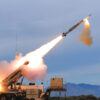By Brandon Moseley
Alabama Political Reporter
This is the second part of our series on how The Boeing Company allegedly used bid rigging, politics, and violated trade secrets to drive an Alabama competitor (Alabama Aircraft Industries/formerly PEMCO) out of business. Last week we discussed how Hayes Aircraft, later Precision Standard, then PEMCO, and finally Alabama Aircraft Industries rose to become the primary contractor doing Programmed Depot Maintenance on the Air Force’s KC-135 Stratotanker fleet and how their niche was challenged by The Boeing Company. AAI is currently suing The Boeing Company for $100 million in federal court alleging that the corporate giant engaged in patterns of misconduct that cheated the Alabama company out of contracts, revenues, and intellectual property.
The Alabama Political Reporter recently sat down with both the former Chairman of the Board of Alabama Aircraft Industries (AAI) Skip Bowling and AAl bankruptcy Trustee Joe Ryan about the downfall of Pemco/Alabama Aviation and the lawsuit against Boeing that alleges Boeing is directly responsible for Pemco’s decline.
Former AAI Chairman of the Board Skip Bowling said, “In my days, working for Lockheed, Lockheed/Martin, I worked for a company whose emphasis was on ethics and contract commitments was absolutely sacred. There was no way that anybody in our firm, during those years, would have ever treated a company, particularly a smaller company, in the way that Alabama Aircraft was treated by Boeing in the instance that we are discussing, today. It was absolutely unheard of. So when I watched as this thing developed, I can say without any hesitation at all, that I have never seen anything quite as egregious as the conduct of Boeing with regard to this small company in Alabama that was doing good work, productive work, cost-efficient work, quality work and that ended up in the situation that it did.”
Chairman Bowling said, “I have never witnessed in my career, a 40 year career, anything close to it. It was devastating for me to watch. Of course, devastating to watch the company with all of its employees have to go through something that they should not have had to go through. It was a case of what I would call corporate bullying.”
In 2003 the Air Force announced it was going to lease 100 new Boeing built KC-767 tankers to replace 135 of the older KC-135 Stratotankers. Principal Deputy Undersecretary of the Air Force for Acquisition Darleen Dryun was assigned the job of negotiating that contract for the Air Force. The price she negotiated for the lease was 60% higher than if the Air Force had purchased the $150 million a plane, tankers outright. Sen. John McCain (R) from Arizona objected to the absurd $21 billion price tag of the lease. Sen. McCain called the lease “corporate welfare” and “fraud.”
As Sen. McCain’s demands grew louder and more strident an investigation was finally launched. The General Accounting Office (GAO) calculated that the lease would cost the taxpayers up to $1.3 billion more than an outright purchase of the new planes. Realizing that the government was being cheated in the proposed deal the investigation soon centered around Darleen Druyun, at that time a new Boeing Vice President. The investigation revealed that Darleen Druyun as the #2 procurement officer in the U.S. Air Force had agreed to give Boeing the absurd price in exchange for her getting a $250,000 a year VP job for herself with the corporate giant and a generous $50,000 signing bonus. Dryun negotiated this deal directly with Boeing Chief Financial Officer Michael Mears. Druyun had previously negotiated jobs for her daughter and son in law with Boeing.
Scores of contracts that Ms. Druyun either awarded or reviewed were scrutinized by investigators, including 11 contracts valued over $33 billion awarded from September 1997 to September 2001 in which Ms. Druyun had the final say. Boeing was awarded all or part of the winning bid in five, which are valued over $16 billion. One of those contracts
awarded by Ms. Druyun in that time period was the KC-135 Stratotanker PDM contract Boeing had received in 1998. The contract had for decades been owned by PEMCO. Ms. Druyun had made the decision to combine the KC-135 Stratotanker PDM contract with the A10 PDM contract putting PEMCO in an impossible position to bid since they lacked the experience to perform the maintenance on the close air support fighter bomber.
Senator McCain said in a speech on the Senate floor, “I simply cannot believe that one person, acting alone, can rip off taxpayers of possibly millions of dollars.” “This appears to be a case of either a systemic failure in procurement oversight, willful blindness, or rank corruption. Either way, full accountability among Air Force leadership is in order.”
Boeing VP Duryun pled guilty to rigging the KB-767 contract in Boeing’s favor and sharing information on the EADS Airbus A330 competing bid with Boeing. She also admitted wrongfully awarding Boeing the small diameter bomb contract and was sentenced to nine months in prison. Boeing CFO Michael Mears resigned his position after it was discovered that he had personally negotiated with Druyun and was sentenced to four months in prison. Boeing CEO Phil M Condit resigned and the company paid a $615 million fine but did not admit guilt.
When all of this became public, it was readily apparent to then Precision Standard executives that Druyun had linked the A10 maintenance with the KC-135 maintenance contract to benefit Boeing who won the bid for the KC-135 PDM work. According to Chairman Bowling, the principal owner and Chairman of Precision Standard at the time “was a gentleman by the name of Matthew Gold. He was a lawyer by background in addition to being the owner of this company. He instituted a lawsuit.” In his lawsuit he argued that the FY1998 KC135 PDM contract was improperly awarded to Boeing based on misconduct by Boeing and Darleen Druyun. The General Accounting Office (GAO) agreed with that finding. Unfortunately for Precision Standard, suing Boeing and the
Air Force would mean suing the very military that they depended on for contracts and the defense contractor who held the contract that was by far the biggest that Precision Standard had. Eventually the Board would let that original lawsuit drop not because it lacked merit but because it would damage the company’s relationships with the American military. This would not be the end of the Alabama companies’ difficulties with Boeing.
Due to Boeing’s inability to execute performance on the KC-135 contract awarded to them, PEMCO and The Boeing Company split the KC-135 PDM work between PEMCO’s Birmingham Airport facility and Boeing’s San Antonio facility at Dryun’s request. In their lawsuit, Alabama Aircraft Industries states that Boeing withheld parts from PEMCO in favor of their San Antonio facility to keep PEMCO from receiving bonus money from the U.S. Air Force for timely completion of their services. Alabama Aircraft Industries also maintains that through the contractor-subcontractor relationship that Boeing required access to PEMCO’s processes procedures and systems integration points and that PEMCO intellectual property was used to upgrade and improve Boeing’s own KC-135 PDM work. PEMCO was never paid by Boeing for any of its intellectual property. AAI also asserts that Boeing lied to them about the U.S. Air Force demanding price cuts on their work. AAI was able to cut their price by $750,000 to $760,000 per plane. AAI claims Boeing never passed any of that saving on to the Air Force or the taxpayers and instead pocketed the difference while still charging the Air Force the original agreed upon price for work done on KC-135 PDM by PEMCO. Chairman Bowling said that he believes that Boeing was making a conscious decision to starve PEMCO of funds knowing that the two companies would likely one day again be competitors for a future KC-135 PDM contract.
Looking back on it, Chairman Bowling said that Boeing’s treatment of Alabama Aircraft Industries (AAI) was “sort of a singular bad event in the aerospace industry.” “It was just inexcusable what happened but that’s where we are today.”
To Be Continued
Next Week we present part 3 of our story on the AAI vs. Boeing litigation
AAI and Boeing prepare to bid as partners on a new KC-135 PDM contract but AAI is betrayed.





















































